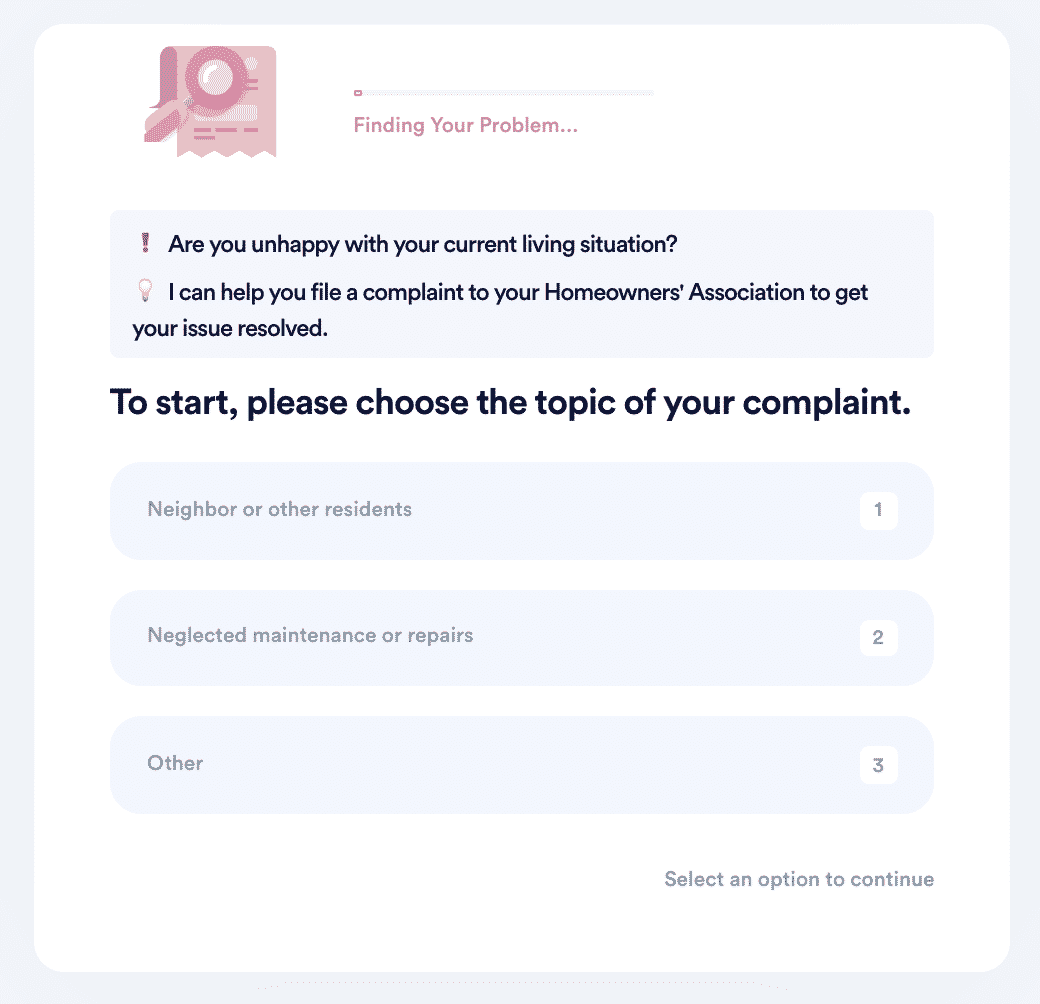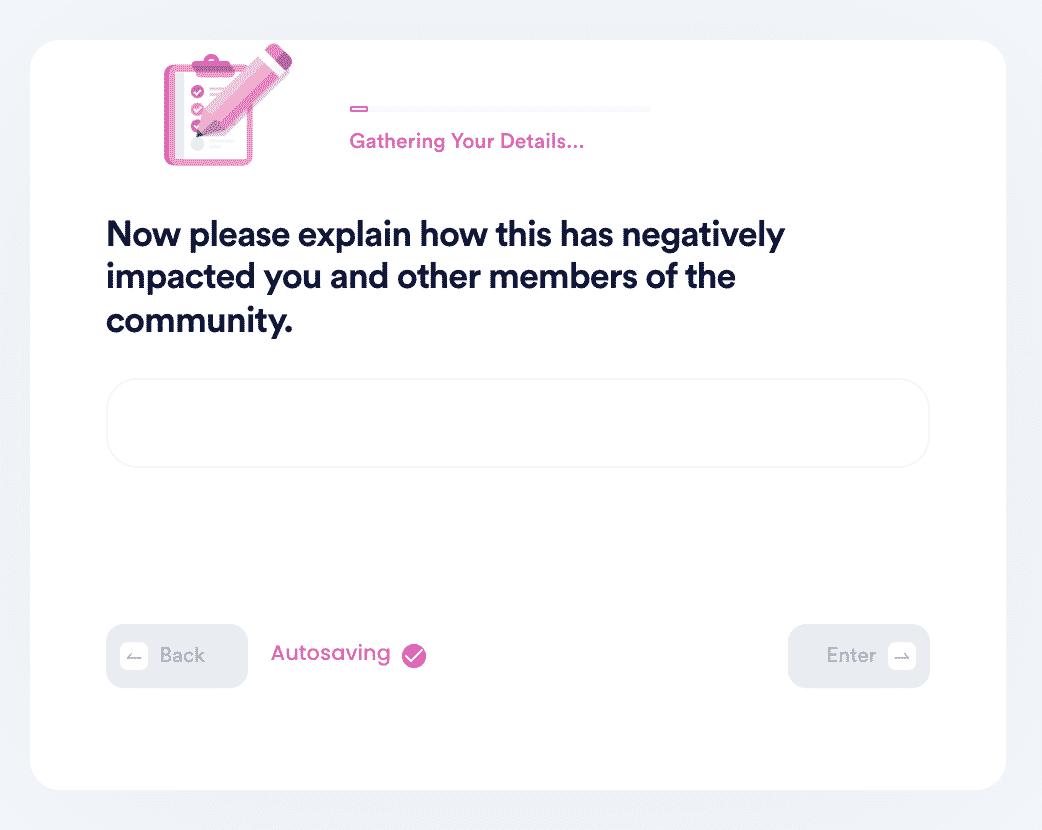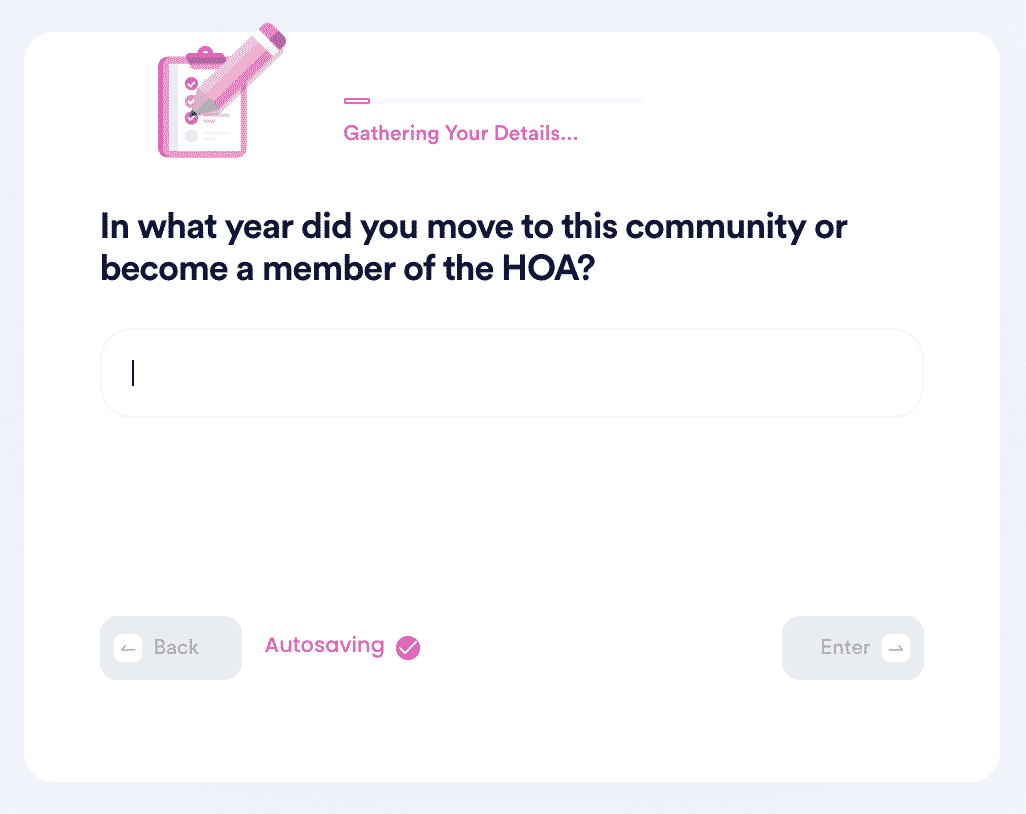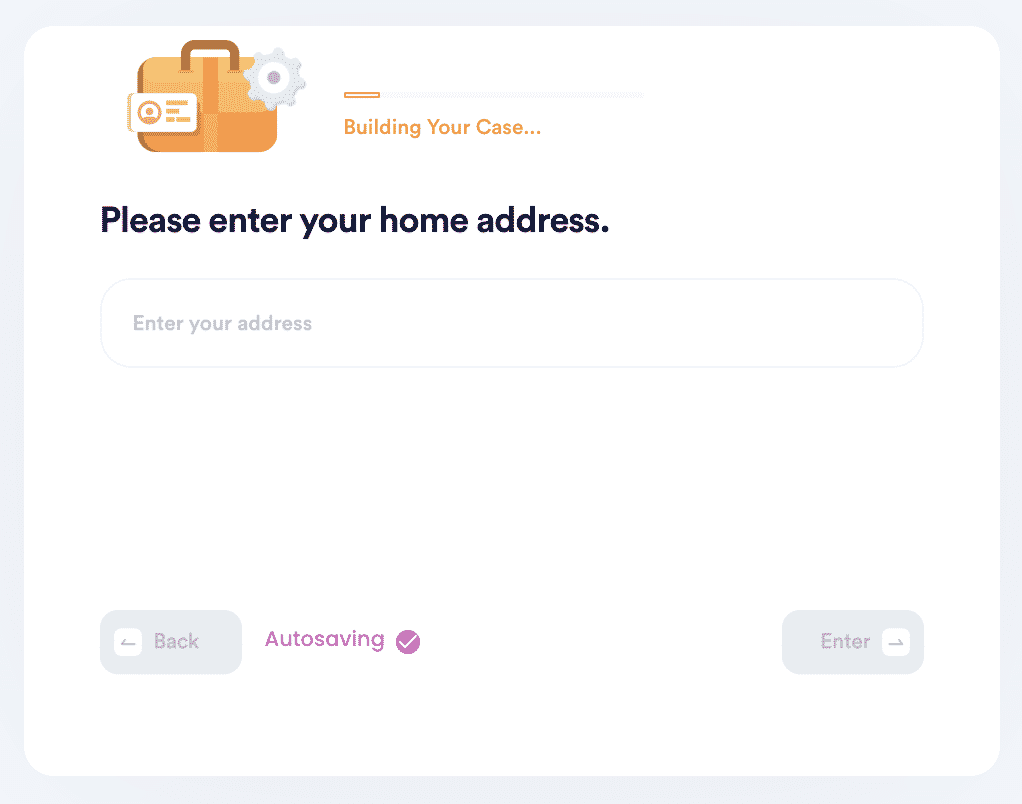File HOA Violation Complaint Forms That'll Be Taken Seriously
Receiving a notice of violation unexpectedly can certainly be discouraging. It can be even worse if you believe that the violation is inaccurate. Nevertheless, do you have the option to dispute this and file an ?
While HOA communities can be an extra layer of support for residents, helping to keep the community clean and maintained, and handling matters that occur in common areas, they also have their flaws.
Here at DoNotPay, we know that HOA violations sometimes happen. When it does, it's important to act as quickly as possible if you believe that the violation is not accurate. Today we're going to talk about some common HOA violations against residents, what steps you can take to handle a violation dispute, and how you can easily fill out a complaint form about a violation with DoNotPay.
HOA Responsibilities
HOA board members are responsible for:
- Overseeing the common area(s) shared by the residents
- Manage the HOA finances
- Enforce and set rules
- Ensure maintenance and upkeep of the area
The board ultimately has a duty to ensure that the HOA can run as smoothly as possible to ensure that all residents are able to take advantage of the benefits of being in an HOA community.
When a member of the association knowingly or unknowingly violates one of the rules set forth by the HOA, the board can issue a violation notice from the HOA board. Alternatively, if the member feels that the notice was unfair, they can file an .
4 Common HOA Violations
Some of the most common areas that HOAs set guidelines to are listed below:
| Landscaping | Curb appeal is one of the most important things that HOAs pay attention to. As part of the HOA, keeping the community clean and visibly maintained is essential. This means that residents are typically expected to keep their landscaping manicured at all times. With that said, residents shouldn't have overgrown lawns or weeds, and the home exterior should be properly maintained as well. |
| Vehicle Limit and Parking | Another common thing that HOAs regulate is vehicle limits and parking. In fact, there is often a limit to how many types of vehicles a resident can have. Additionally, there may be rules regarding speed limits in the community and rules on where residents can park. |
| Renting Your Property | Your HOA may have a rule regarding subletting your home. This matters because most HOA insurances are dependent on the number of owners in the community vs renters. |
| Trash | Another important aspect of maintaining a community is monitoring trash pickup. Many HOAs require a specific trash process, such as breaking down large boxes and furniture. It's also possible that residents will need to put their trash out at certain times. For instance, some residents can be in violation if they put their trash outside too early or if it's not placed in a certain location. |
Violating HOA rules warrants a notice and corresponding penalties.
What If I Committed a Violation But My Fine Seems Excessive?
Residents may commit a violation from time to time. Even so, it's important to ensure that the fee is appropriate for the violation. For instance, some residents have complained about being excessively charged for smaller violations. If you believe that you were unfairly fined, be sure to go over your HOA handbook.
How to Handle a Violation Dispute
If you received a violation and would like to dispute it for inaccuracy, there are a few ways you can handle it.
- Review the Law: Whenever you receive a violation, it's a good idea to check with federal and state laws to ensure that the violation is accurate. Going over these laws can help support you in your dispute.
- Talk with the Board or HOA Manager: Unfortunately, some HOA guidelines can be vague, making it difficult to understand whether you were really in violation. If this is the case, it's a good idea to talk with the board or HOA manager about your concern.
- Continue to Pay Your Dues: Even if you strongly believe that the violation is inaccurate, it's important to continue paying your dues. This is because outstanding fees can incur quickly, which can create a bigger problem.
File a Complaint Form About a Violation With DoNotPay
Do you need to file a complaint form regarding a violation with your HOA? While unexpected violations can be frustrating, filing a formal complaint is one of the best ways to get your issues heard. Here at DoNotPay, we're here to make filing a complaint form easy with just a few simple steps.
In fact, we've helped residents from all over deal with issues regarding their HOA. Some issues we've successfully helped them with include:
- Filing an HOA noise complaint
- Disputing homeowners association late fees
- Dealing with discrimination against renters
- Other homeowners association disputes
If you're ready to successfully file your complaint form, all you need to do is:
- Choose and describe the nature of your complaint (neighbors, maintenance, etc).

- Explain how this problem has negatively affected you and how you want the HOA to address the problem.

- Tell us how long you've been a member of this HOA.

- Confirm your home address so we can generate state-specific arguments on your behalf!

for an HOA violation is made simple with DoNotPay. Sign up with us today to get started!
 By
By